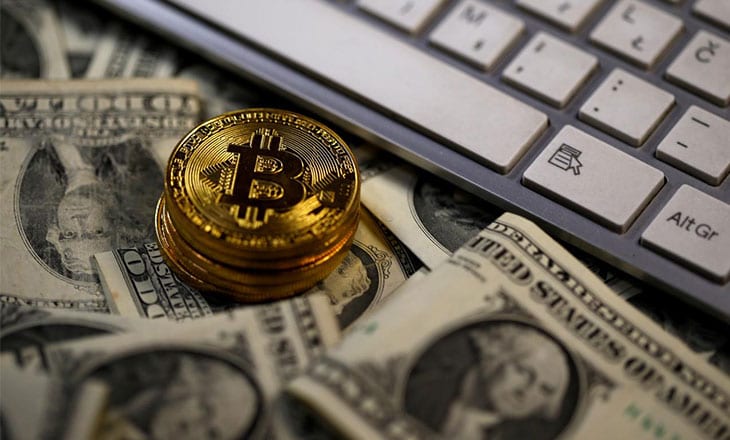Bitcoin is finally in a bit of a correction mode, down some $1,500 after attacking the $9,000 level, but a 17% drop is nowhere near the 30%+ correction that analysts have been prophesizing for weeks. In the past, anytime that Bitcoin has failed to deliver on its promise, whether monthly, weekly, or now daily, a predictable stream of negative articles usually develops overnight, filled with toxic venom that has been stored up for far too long. Bitcoin advocates have weathered these many storms for a full decade, but it may be necessary once again to defend cryptos, what they are and what they are not.
One crypto writer and researcher by the name of Kyle Torpey has decided to get out in front of this “Boo-Bird Train” before it gains traction by scripting an Op-Ed that debunks the age old complaint that “Bitcoin is a Ponzi Scheme”. The phrasing has certainly earned its place as “click bait”, whenever it appears. Jamie Dimon, the Chairman and CEO of JPMorgan Chase, has immortalized the quote as his own, has since denied it, then apologized for it, but remains sanguine, despite his bank’s foray into the blockchain.
But Jamie is not the only one. He has also professed that Bitcoin is an investment that will end badly for its investors, much in the vein of previous colossal “bubbles” that have suddenly deflated. Nobel Prize-winning economist and New York Times columnist Paul Krugman and fellow Nobel Laureate Robert Shiller have echoed similar sentiments. Being the well-respected economists that they are, they do not recognize any value in the Bitcoin proposition, “a bubble that would eventually end badly for everyone holding the asset.” Krugman even conjured up the memory of Bernie MaDoff, the Wall Street “Ponzi King”, who duped investors out of billions, but is now behind bars.
The negative reaction of both bankers and economists is to be expected, but if you take any bill of currency and look at it, one could make the same argument that basic fiat currency is a “Ponzi Scheme”. Most fiat currencies were once backed by gold bullion, another Ponzi scheme if you follow this line of reasoning, but that “backed-by-gold” designation disappeared in the seventies, when President Nixon changed everything.
The foreign exchange market was the result, and fiat currencies are now backed by the trust and faith of the country that issues them, along with the central bank that has consistently diluted them from time to time. Whether through interest rate adjustments, quantitative easing, or banks doing what they do to expand the supply of money in circulation, the value of fiat declines to meet economic and political objectives. Mr. Torpey, at this point, quotes AngelList co-founder Naval Ravikant, who said: “Money is a bubble that never pops”.
Bitcoin was conceived as a response to this constant dilution process. Yes, initially, Bitcoin was to be used at the point-of-sale for the exchange of value for goods and services, but its second reason for being suddenly took over as time went by. It became a digital store of value with controlled dilutions, so as to keep supply in check and provide a hedge against constantly diluting fiat currencies. The supply of Bitcoins is limited at 22 million. We are currently at 17 million and change. Next year, the “money supply”, a term central bankers can understand, will expand by only 3.8%.
Ponzi schemes typically promise high returns to investors in a non-existent enterprise, rewarding early responders, and leaving the last in line to hold the proverbial bag. The market cap today of all crypto tokens is somewhere north of $225 billion. You can double that figure to include the value of exchanges, mining operations, and other support entities in the crypto mix. $450 billion is no small enterprise.
As for the “store of value” argument, citizens in challenged economies have already found that Bitcoin offers a refuge that is easily accessible. Just ask anyone from Venezuela or Argentina or China for that matter. The Yuan has declined nearly 4% versus the USD, and capital has flown out of China, which has a crypto ban, and tapped into VPN networks to find safety and security in guess what – Bitcoin in OTC markets.
Is Bitcoin a Ponzi scheme? As Mr. Torpey suggests: “All forms of money are Ponzi-esque.” Have early investors in Bitcoin made out like bandits? Yes, but so have any investors that had the foresight to invest during the early stages. Paul Krugman, the IMF, and others may say that Bitcoin is a “naturally occurring Ponzi scheme”, but investors that have shelled out $450 billion to date appear to disagree.
